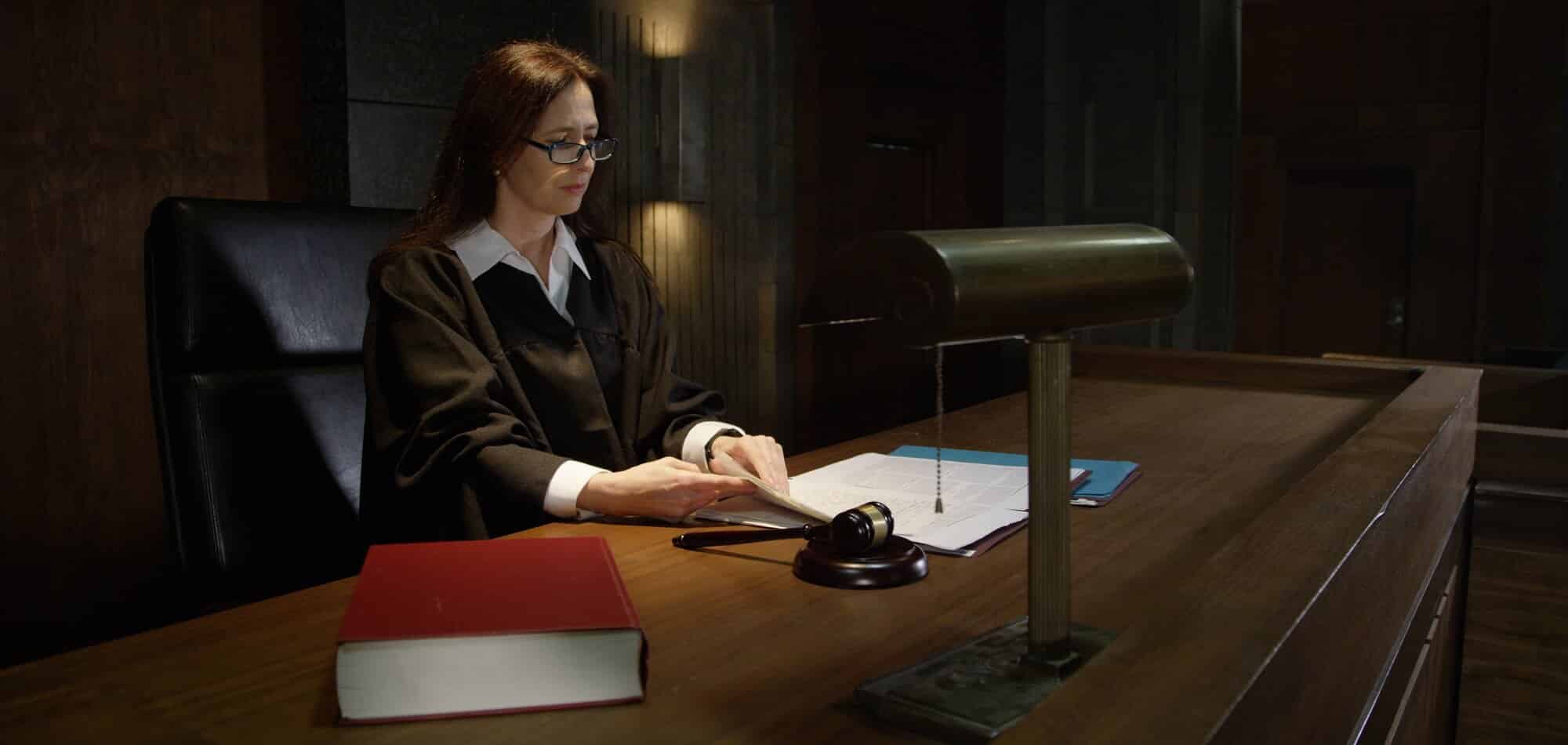Criminal Defense Attorney
Table of Contents
ToggleThe primary purpose of criminal defense for many people is to avoid a conviction. Your defense, on the other hand, does not always finish when the jury renders its decision. You will have to appear in court again after a guilty verdict. David E. Stanley APLC, a criminal defense attorney, is ready to give the best advice to any criminal case.
If there is a victim of the offense, the pre-sentencing investigation will contain a victim impact statement. This investigation aims to fill in the gaps in the court’s understanding of the events leading up to the crime. For that, you need an experienced criminal defense attorney. As a result, the courts may give a more appropriate penalty if they understand the offense better.
During the hearing for your sentence, your attorney will use the facts gathered during the pre-sentencing process. You will also have the opportunity to argue in your defense. Getting legal representation immediately is necessary. David E. Stanley is an experienced attorney who can guide you through the legal process and help you achieve the most favorable outcome possible for your case. Get in touch with us as soon as possible to receive a free consultation!
Do You Need a Criminal Defense Attorney?
Call David E. Stanley, APLC, at 225-926-0200 Today!
Defense Techniques that May Help Reduce Sentence
Here are several ways to get a criminal sentence reduced that you might explore with your lawyer.
Investigate Your Past to Elicit Sympathy
Personal trauma and mental health difficulties frequently influence criminal conduct. For example, maybe a bar brawl got out of hand because the person shouting at you reminded you of your controlling father. Perhaps you’re dealing with a mental health issue or an addiction.
Your lawyer can assist you in evaluating the circumstances that led to your illegal activities and determining whether or not expressing your history or side of the story during sentencing might be beneficial.
Show Genuine Regret and a Proactive Desire to Improve
People convicted of crimes will try to avoid hearing the victim impact statement or minimize the repercussions of their conduct in any way possible. However, recognizing how your actions harmed others and considering how you might accept responsibility for your future actions may appear compassionate to the courts.
Attending counseling, commencing treatment, or donating money and time to a charity supporting victims of criminal offenses could be beneficial. These actions demonstrate that you are responsible for your actions and want to lessen the damage they caused. In addition, other sentencing options may be available to help reduce the effects of a recent conviction. Finally, examining your position and potential punishments in detail might assist you in better planning for the last stages of your criminal defense.

Plea Bargains
Prosecutors frequently try to agree with an alleged offender to avoid costly and time-consuming trials. If you plead guilty (the “plea”), they will attempt to persuade the judge to reduce your sentence (the “bargain”).
A plea deal may be a suitable alternative if the case against you is vital or you just wish to plead guilty. Because of your apparent cooperation, the judge may be lenient and award you a reduced sentence.
Remember, a plea bargain isn’t always a sure thing. Regardless of your cooperation, the judge has the option of imposing a harsher sentence on you. In addition, a guilty plea is irrevocable. Therefore, a guilty plea could linger on your criminal record for life, depending on the offense. Furthermore, by pleading guilty, you are acknowledging that you were the one who committed the offense. For some, that carries a lot of emotional weight, and you might want to go to court to prove your innocence. You’re also unable to raise any concerns about police misbehavior. Instead, you’re admitting that you broke the law, regardless of how they acted.
Discuss your case thoroughly with your counsel before accepting a plea bargain. Take their counsel seriously if they believe a plea bargain is the best action. Remember, though, that you always have the right to defend yourself, and if you want to fight your case in court, your attorney should support you.
Proving Circumstances to Avoid
Even though a defendant appears entirely guilty, the court may exercise mercy on them. People’s natural tendencies might make poor decisions, especially when confronted with unexpected circumstances. Mitigating circumstances are conditions outside of the criminal justice system that impacts criminal behavior.
Suppose the prosecution has a strong case, and a guilty finding appears to be a foregone conclusion. In that case, your attorney may be able to show that circumstances outside of the offense warrant a lesser punishment.
Mitigating Circumstances Surrounding the Offense
Your attorney can use various strategies to argue that the crime does not warrant a harsh penalty.
1. There was No Actual Harm Done
Consider a mugger who approaches someone in a dark alley. They take out a knife and demand the victim’s wallet. They realize the wallet is empty when they receive it, so they give it to the victim and depart. The attacker intended to mug the victim and undoubtedly commit armed assault. However, no one was wounded, and nothing was stolen. In a circumstance like this, an attorney may be able to negotiate a reduced sentence.
2. The Victim Is Also at Fault
Take the same scenario, except swap the victim and the attacker this time. Consider a person going along the street, minding their own thing. A mugger appears, brandishing a knife, and demands the victim’s wallet. The mugger’s knife is knocked out of the mugger’s grasp, and the victim begins to beat them severely. This would-be victim is charged with aggravated violence on the spur of the moment.
In terms of the law, this person made a mistake. You can’t defend yourself with disproportionate force. On the other hand, this individual did not assault someone at random. The mugger would never have gotten hurt if he hadn’t started the fight. This example of “victim culpability” can be used to request a reduction in punishment.
3. When You’re Under Pressure
You can claim that you were compelled if you were threatened with committing a crime. The court may still find you guilty, but it may decide to give you a lower sentence because of coercion.
4. Circumstances Surrounding the Suspected Offender
An attorney may be required to cast a positive light on the alleged perpetrator on occasion. Here are some examples of how a defendant’s circumstances may influence their punishment.

5. Addiction Issues
Long-term addiction can have a lifelong impact on a person’s decision-making ability. Being under the influence of a substance distorts your judgment as well. If you’ve been battling addiction, a court-ordered treatment program may be able to reduce your sentence to probation.
6. An Offense for the First Time
This could work in your favor if you have an otherwise spotless record and are arrested for a single offense. If the court considers that you will not continue to constitute a threat and that rehabilitation will be effective, it may reduce your sentence.
7. Cooperation at a High Level
If you agree to collaborate extensively with the cops, they may begin to believe that you are trying to do the right thing. This is particularly true if you assist them in locating any co-defendants. In addition, they may start to see you as a team member and advocate in your favor, pleading with the court to reduce your sentence.
8. Problems with Mental Health
If you had a temporary mental health problem that led to you doing an illegal act, you might be eligible for a reduced sentence. Remember that this is not the same as filing an insanity petition. Those are only for persons who have severe and debilitating mental conditions. Reintegration into society is not immediate. Instead, they are usually committed to high-security mental health centers. While they are not technically jails, their inmates are not free to come and go. They’ve been sentenced to be there, and their actions and liberties are tightly monitored.
We’re talking about a brief health issue that resulted in a lack of judgment. Although you are still guilty of the crime, your mental condition at the time may result in a reduced punishment.
Frequently Asked Questions:
What are the Four Most Important Justification Criminal Defenses?
The four most important justification criminal defenses used in criminal cases are innocence, self-defense, insanity, and constitutional infringement. A solid defense can assist raise enough doubt that a conviction is unjustified. Therefore, criminal courts require that a judge or jury determine guilt beyond a reasonable doubt.
What are the 7 Procedural Defenses?
The seven procedural defenses are entrapment by the government, false confessions by witnesses, faked evidence, denial of a timely trial, double jeopardy, prosecutorial misconduct, and selective prosecution.
What are Three Arguments for a Valid Defense to a Crime?
The three arguments for a valid defense to a crime are: They can contest the actus reus by denying that they performed the act. They can argue that they lacked the required criminal intent or guilty mentality, arguing that the men’s rea was violated. Finally, the accused has the right to react to the charges and submit a defense.

Experienced Criminal Defense Attorney
Mr. Stanley has successfully practiced criminal law from his Baton Rouge office since 1983. He is a renowned trial lawyer who devotes his practice to defending persons and businesses accused of significant or complex felony crimes and those seeking to overturn an unjust criminal conviction or disproportionate punishment. In addition, he is exceptionally dedicated and skilled in the area of federal criminal defense.
Schedule a Consultation with David E. Stanley, APLC,
Criminal Defense Attorney!
Call 225-926-0200 Today!
David E. Stanley, APLC
1055 Laurel Street Suite 2
Baton Rouge, LA 70802
225-926-0200

David Stanley is the founder and principal of David E. Stanley APLC. Since 1983, Mr. Stanley has successfully practiced law from his office in Baton Rouge, Louisiana.


